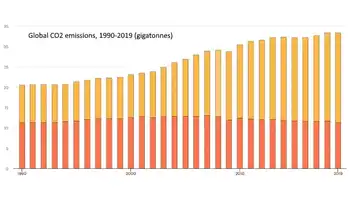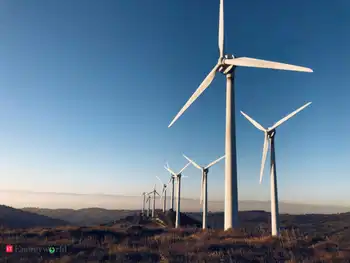EVs are coming, but can California take charge?
By Toronto Star
Protective Relay Training - Basic
Our customized live online or in‑person group training can be delivered to your staff at your location.

- Live Online
- 12 hours Instructor-led
- Group Training Available
Californians like their hybrid-electric cars, and it's widely expected they will become the earliest adopters of a new generation of plug-in electric vehicles such as the Chevy Volt, the Nissan Leaf and the Prius Plug-In Hybrid.
For companies developing the charging infrastructure and electric cars themselves, this makes California an attractive place to sink roots. And sinking roots they are, something Michigan and Ontario should be watching closely.
Credit, of course, goes to electric car maverick Tesla Motors, which raised $226 million US late last month in an initial public offering. Some say Tesla, which is based in Palo Alto, Calif., is the catalyst for turning Silicon Valley into the new Detroit.
Elon Musk, co-founder and chief executive of Tesla, says his company has vision, is nimble and is willing to bet big. "We're a Silicon Valley company, closer to an Apple or a Google than to a GM or Ford in the way we operate," Musk said last month during an investor road show. "I don't think that's something that GM or Ford is going to be able to replicate – ever."
Musk clearly gets joy out of painting the big boys of the auto sector as dinosaurs. So, too, do the investors backing California's new breed of vehicle start-ups. As Ray Lane, managing partner with venture capital firm Kleiner Perkins Caufield & Byers said last September, "I don't see any of these new car companies based in Detroit."
Good for California, of course, and also good for Californians who are all too eager to embrace the technology. Utilities in California, on the other hand, wonder what the impact might be on the bankrupt state's historically fragile electricity system.
"The California utilities are quietly freaking out," says Mark Kerbel, chairman and co-founder of Toronto-based Regen Energy.
The worry is that some affluent neighbourhoods, where people can afford to buy a first-generation electric car, will form dense clusters of vehicle owners wanting to charge up their vehicles at the same time.
"It's really the same as putting another air conditioner in your house as far as the utility is concerned," says Kerbel. "When you hear how the utilities speak down there, they view it as a catastrophic problem for some of their neighbourhood two to three years out."
By "catastrophic" he means that brownouts will become a regular threat in certain EV-friendly communities where the distribution system is already overstressed.
Regen, a company I profiled here nearly two years ago, has a big interest in all of this. As a refresher, the company has developed a wireless device that applies the concept of "swarm logic" to manage when major electrical appliances draw electricity from the grid.
Most other energy management systems use a top-down model, by which some central control system tells a specific device or group of devices to turn on or off. This approach can be complex and costly.
Swarm logic abandons the command-control approach and instead relies on the ability of individual devices, such as air conditioners or compressors, to work things out on their own. It's very similar to how bees communicate with each other to create an intelligent collective and solve problems. The goal for Regen is to minimize the amount of power these devices are collectively using at any given point in time.
It recently became clear to Kerbel that this same approach could be used for electric-vehicle charging. "Instead of having people charge willy-nilly the cars would instead detect each other and start talking," he explains.
"As soon as you come home, for example, your plug-in Prius would start talking to other plug-in cars in the neighbourhood and they would all come up with a plan to charge evenly without overwhelming the grid."
Regen has caught the attention of some California utilities, and at least one demonstration project is in the works. "We're mapping out an evaluation project with a major California utility and a group of high-profile engineering colleges in the area," says Kerbel.
It's a nice surprise for Regen, which never set out initially to tackle the vehicle-charging market. "The question for us now is not whether the technology works," says Kerbel. "It's about what interesting applications people will continue to dream up."











